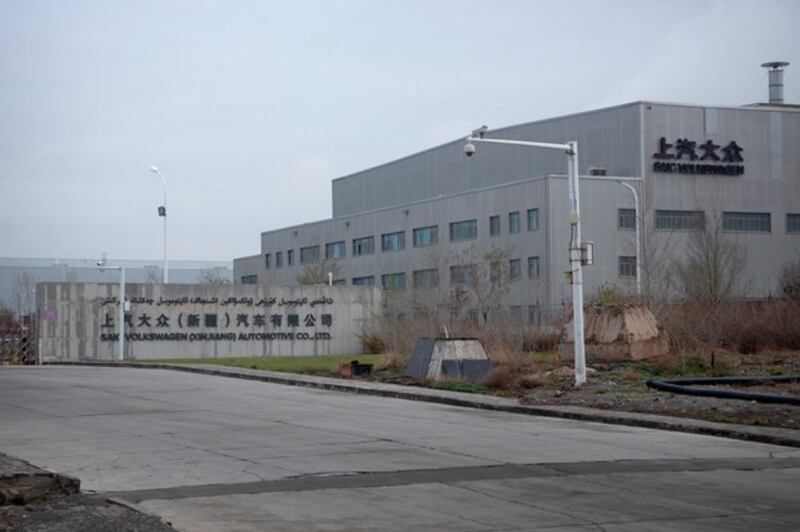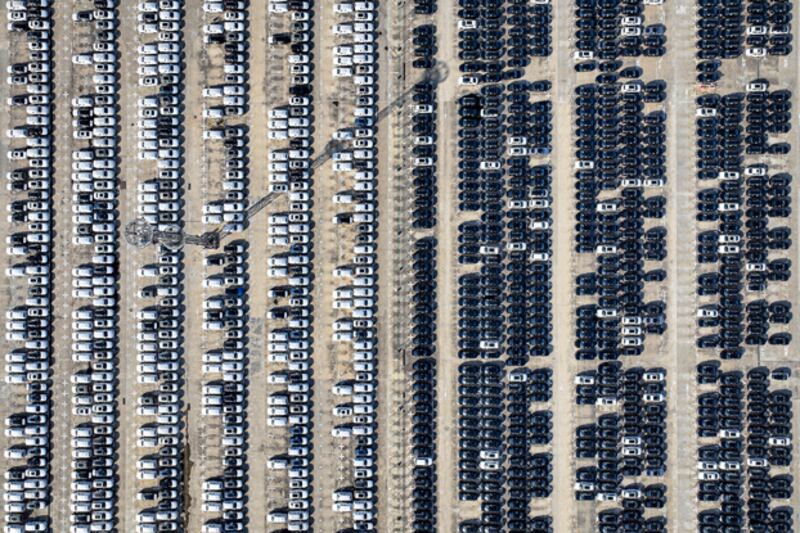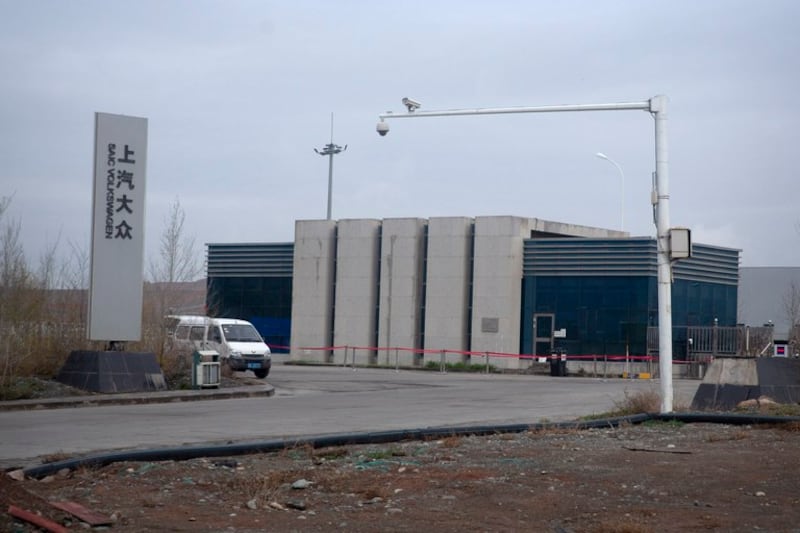Volkswagen’s audit of its joint venture plant in Xinjiang — where human rights groups accuse it of using Uyghur forced labor — contains flaws that make it unreliable, said an expert who obtained a leaked confidential copy of the audit.
The German automaker had declared in December that the audit of the factory, a joint venture with Chinese state-owned SAIC Motor Corp., showed no signs of human rights violations.
But after analyzing the leaked audit report, Adrian Zenz, senior fellow at the Victims of Communism Memorial Foundation in Washington, found that contrary to its claims, the audit failed to use international standards and was therefore “unsuited to meaningfully assess the presence or absence of forced labor at the factory.”
“The methodology of the audit was extremely faulty and insufficient,” he told Radio Free Asia in an interview.
Zenz also found problems with auditors themselves.
Last year, Volkswagen hired the Berlin-based consultancy Löning-Human Rights & Responsible Business GmbH to perform the audit. Löning in turn commissioned the Shenzhen-based Laingma law firm, which has ties to the Chinese Communist Party, to conduct the actual examination.

But Zenz found that neither Liangma nor its expert, British national Clive Greenwood, had experience in performing social audits or SA8000 certifications based on internationally recognized standards of decent work.
“Liangma’s audit did not conform to the SA8000 standard that it claimed to assess,” Zenz wrote in the 24-page report issued Thursday that was posted on the website of the Jamestown Foundation, a Washington–based conservative defense policy think tank.
“Shortcomings in the audit’s method and implementation mean that it was not able to adequately assess forced labor risks,” he wrote.
Inconsistencies
Löning, which claimed the application of SA8000 auditing principles, neglected key aspects of this standard and ignored the region’s repressive political environment, Zenz found.
Furthermore, Liangma’s website does not advertise auditing services or indicate that the firm has expertise in conducting them. And the audit did not assess all the indicators of possible forced labor, he later told RFA in a phone interview.
Zenz also found that two Han Chinese lawyers and Greenwood conducted the audit, but did not ask employees questions about possible forced labor, and they didn’t follow standards for worker interviews, he said.

The auditors live streamed interviews with workers back to their home office, thereby affording workers no confidentiality and risking intercepts via the internet by the Chinese government, he said.
By reading the leaked audit document, one can “assess the discrepancy between Volkswagen’s final statement about the audit and what the audit itself actually said,” Zenz said.
Volkswagen defended the audit, saying it “always adheres to the legal requirements in its communications,” a company spokesperson told RFA in an email, asking not to be identified by name. “At no time has there been any deception of investors or the public.”
Calls to withdraw
News of the leaked audit prompted the Inter-Parliamentary Alliance on China to issue a statement on Friday saying it was dismayed by its contents.
“It is totally unacceptable for a major company like Volkswagen to continue operating a factory where assimilationist policies are promoted, and unacceptable that claims were made about the integrity of their supply chain due diligence which appear to be false,” said the statement issued by lawmakers from various democratic countries focused on relations with China.
The group called on Volkswagen to withdraw from Xinjiang and provide a full explanation in response to reports about the audit.
RELATED STORIES
[ US lawmakers query credibility of Volkswagen forced labor auditOpens in new window ]
[ Volkswagen reviews Xinjiang operations as abuse pressure mountsOpens in new window ]
[ Volkswagen under fire after audit finds no evidence of Uyghur forced laborOpens in new window ]
The audit also indicated that the factory held staff activities to promote “ethnic unity” and ensure “harmony,” though these activities are associated with forced assimilation, Zenz’s report notes.
“This raises severe ethical concerns over Volkswagen’s continued presence in the region,” Zenz wrote.
“A review of the audit shows that it did not attempt to assess forced labor according to international standards,” Zenz said. “It simply claims no forced labor based on a visual inspection of the factory and a review of worker contracts.”
Furthermore, Greenwood, who joined Liangma in September 2023, shortly before the audit to participate in it, has publicly stated that SA8000 audits are worthless in China, the report said.
“Mr. Greenwood’s enigmatic and in parts highly obscure background is marked by twists, turns, contradictions and obfuscation,” Zenz said in the report.
‘Profiting from exploitation’
Uyghur rights groups have repeatedly called for Volkswagen to withdraw its presence and supply chains from Xinjiang and to shut down its joint venture in Urumqi.
The World Uyghur Congress, or WUC, headquartered in Germany, said Volkswagen had “long demonstrated its complicity in the Chinese government’s genocide of Uyghurs.”

“Credible and independent audits are not possible in a repressive environment, where millions of Uyghurs are under extensive surveillance, arbitrarily detained, and tortured for words or appearances that do not conform to Communist Party ideals,” Gheyyur Qurban, the group’s director of German Advocacy, said in a statement.
“It is high time for VW to leave,” he said.
Rushan Abbas, executive director of Campaign for Uyghurs, or CFU, said the leaked audit report pointed to “not mere oversight” but a “deliberate, cold-blooded betrayal of basic human dignity.”
CFU said it received a copy of the leaked audit report in August and that its findings had been shared with Financial Times, Der Spiegeland German TV broadcaster ZDF.
“Profiting from the exploitation and suffering of innocent people is the height of moral bankruptcy,” Abbas said in a statement. “Volkswagen must exit the Uyghur homeland now and take a definitive stand against genocide.
“This isn’t about a flawed audit — it’s about a corporation knowingly prioritizing profits over the lives of Uyghur people,” she said.
Edited by Malcolm Foster.
